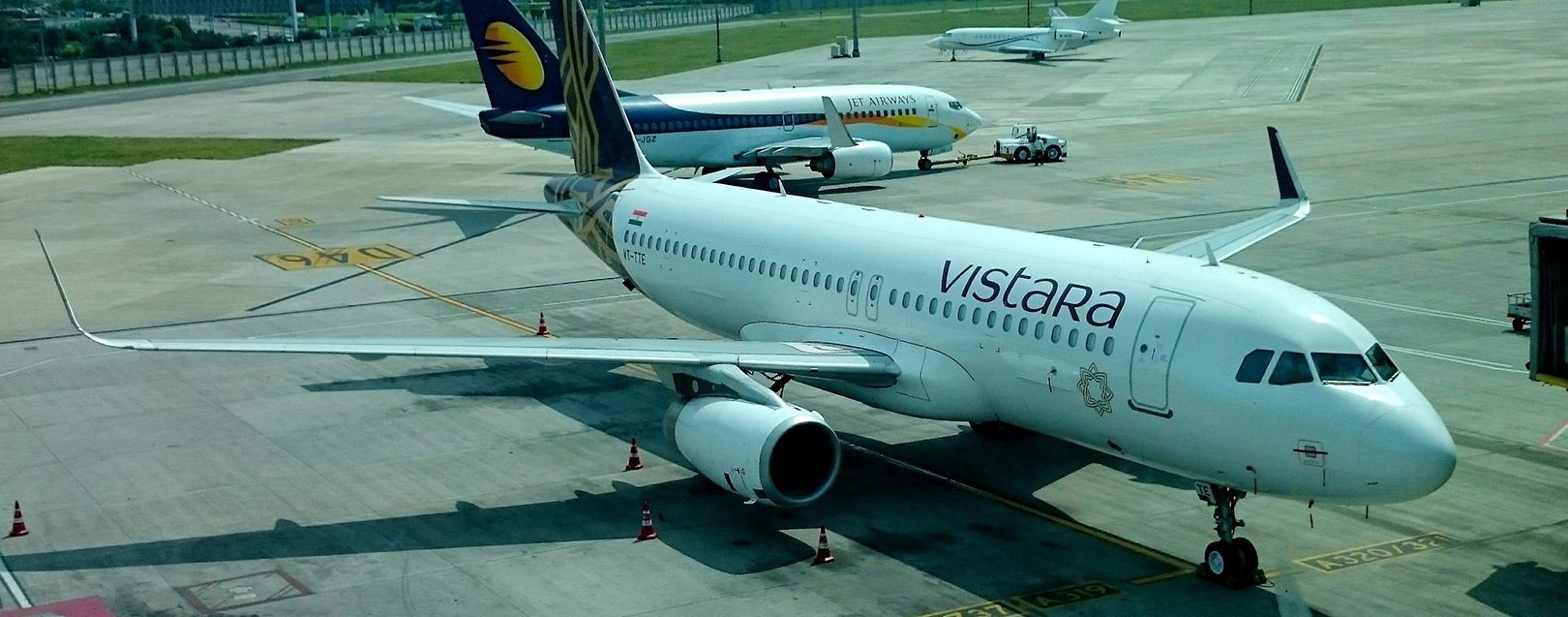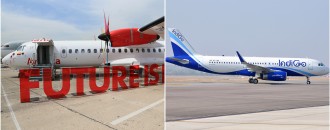
Vistara to operate 530 flights per week by year end
PTI
Domestic full service carrier Vistara today said it plans to operate 530 flights per week by year end with the induction of its 13th aircraft, which is expected to be delivered to the airline next month.
The city-based airline, Vistara, in which Tata Sons and Singapore Airlines own 51 per cent and 49 per cent stake, respectively, currently operates 430 weekly flights to 17 destinations with a fleet of 12 Airbus A320 planes.
"We have inducted the 12th aircraft in the fleet last week, and the 13th aircraft will be delivered to us in the third week of October. With this, we will be operating 530 flight per week by this year end," Vistara Chief Strategy Commercial Officer Sanjiv Kapoor said.
As part of its fleet expansion plans, Vistara will induct 20 aircraft -- 13 Airbus A230 and another seven Airbus A320 (neo) by June 2018.
Launched in January 2015, the airline currently holds 2.4 per cent market share.
He said the airlines will also introduce its flight services to Port Blair from September 30, which would be the airlines 18th destination.
On the on-going low fare war, triggered by the national carrier Air India, which has dropped its last-minute ticket prices, airline chief executive officer Phee Teik Yeoh said that "such pricing is not sustainable."
"We have tailored our pricing more with the market demand. we are not talking about what you call the reckless pricing. Indian customers focus is shifting towards value for money. They don't have to necessary go for cheaper fares," he said.
Pointing out that price war is not new to either Vistara or India, Yeoh said, "I think where it differs is in its intensity, regularity and extent. Suffice to say that in the last four to five months the price war has increased."
"We are pricing at a level where our customer can bear vis-a-vis value. We have many considerations before we decide (on) low fares."
Dropping fares for last minute bookings are not sustainable, he said, adding, "but ultimately it is the function of excess capacity situation in the market."



.jpg)


 to success.
to success.